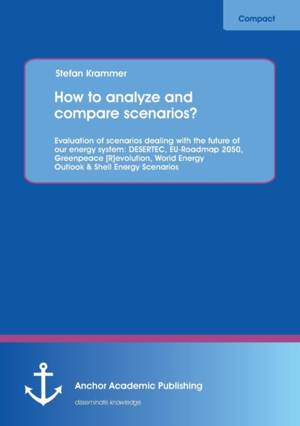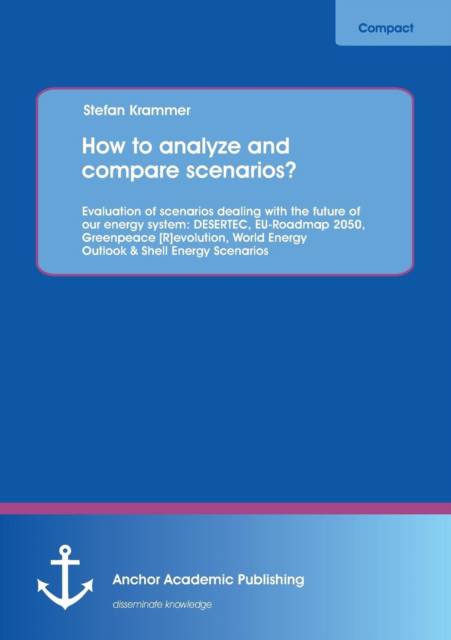
- Retrait gratuit dans votre magasin Club
- 7.000.000 titres dans notre catalogue
- Payer en toute sécurité
- Toujours un magasin près de chez vous
- Retrait gratuit dans votre magasin Club
- 7.000.0000 titres dans notre catalogue
- Payer en toute sécurité
- Toujours un magasin près de chez vous
How to analyze and compare scenarios? Evaluation of scenarios dealing with the future of our energy system
Stefan Krammer
34,45 €
+ 68 points
Description
Right now, our energy system is highly dependent on fossil sources. This dependency causes two major problems: First, it causes the scarcity of these non-renewable energy sources, and climate change. There are two alternatives to fossil energy sources that are on the one hand, nuclear energy, and on the other hand, renewable energy sources. The process of nuclear energy is fascinating for the energy outcome of one kilogram of uranium equals the stored energy of about 3.000 tons of coal. Nuclear energy can reduce the problems that cause climate change for, the process is carbon neutral but, it leads to several other problems as nuclear proliferation, incidents, and the unsolved problem of waste disposal. Renewable energy sources are carbon neutral, and by definition renewable, and therefore, they could solve both major problems of the energy sector. Right now, the drawbacks are at first that most of them are not competitive, and need to be subsidized by governments, and second, the technical challenge to store the produced energy. It is easy to understand that the future of the energy sector is highly uncertain, and that under these circumstances, tools are of no use as far as they are extrapolating past trends. In the last years, several energy scenarios have been conducted in order to display the major uncertainties. It is not surprising that the results are strongly varying, and therefore, the results lead to the question of the characteristics and the quality of the scenarios. But, there has been no analysis of the characteristics and the quality of energy scenarios so far. However, the author analyzes these in this study. The author begins with a short introduction about the history of scenarios, and continues with the development of a general framework of the scenario development process. Further, he lists its possible variations. The scenario typology that consists of 15 variables that can be used to examine the characteristics and the quality of scenarios is
Spécifications
Parties prenantes
- Auteur(s) :
- Editeur:
Contenu
- Nombre de pages :
- 52
- Langue:
- Anglais
- Collection :
Caractéristiques
- EAN:
- 9783954890590
- Date de parution :
- 05-06-13
- Format:
- Livre broché
- Format numérique:
- Trade paperback (VS)
- Dimensions :
- 148 mm x 210 mm
- Poids :
- 81 g

Les avis
Nous publions uniquement les avis qui respectent les conditions requises. Consultez nos conditions pour les avis.






